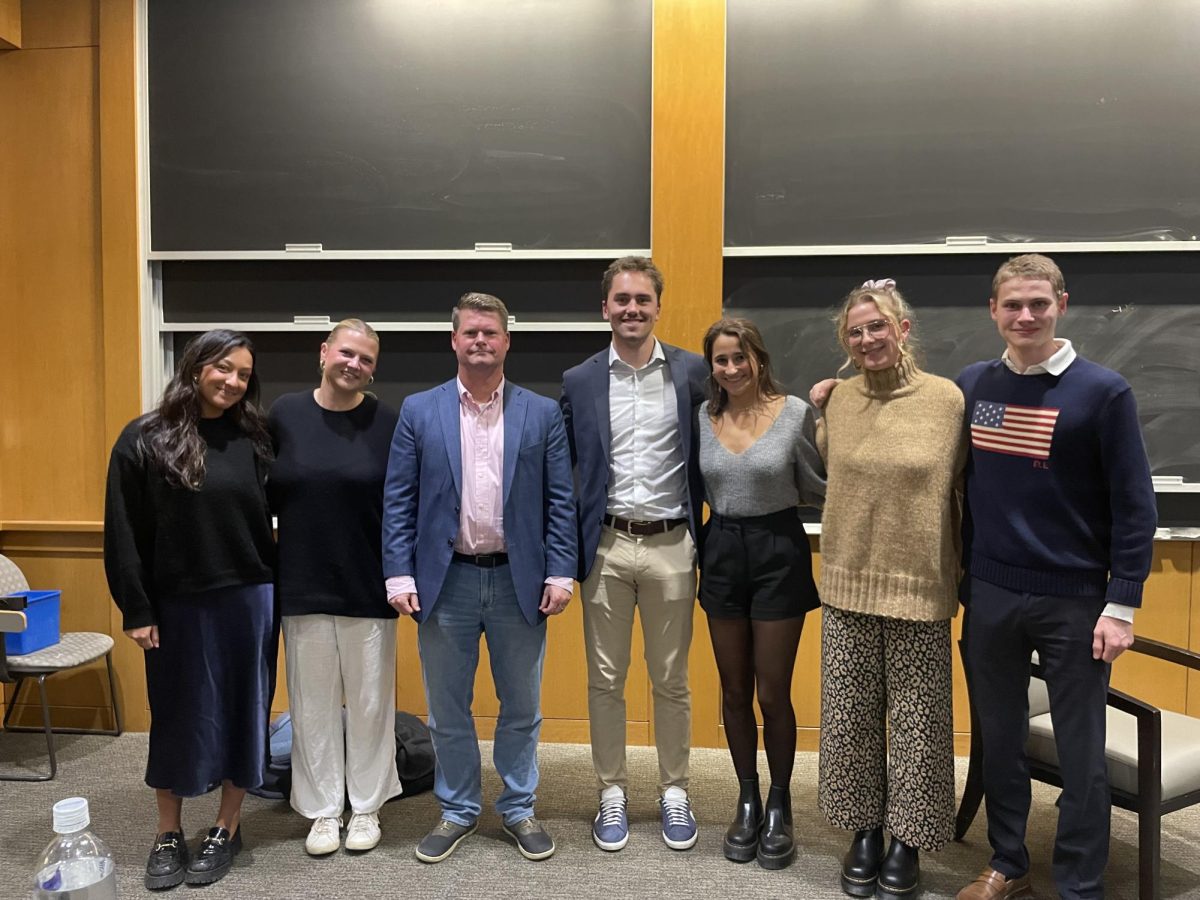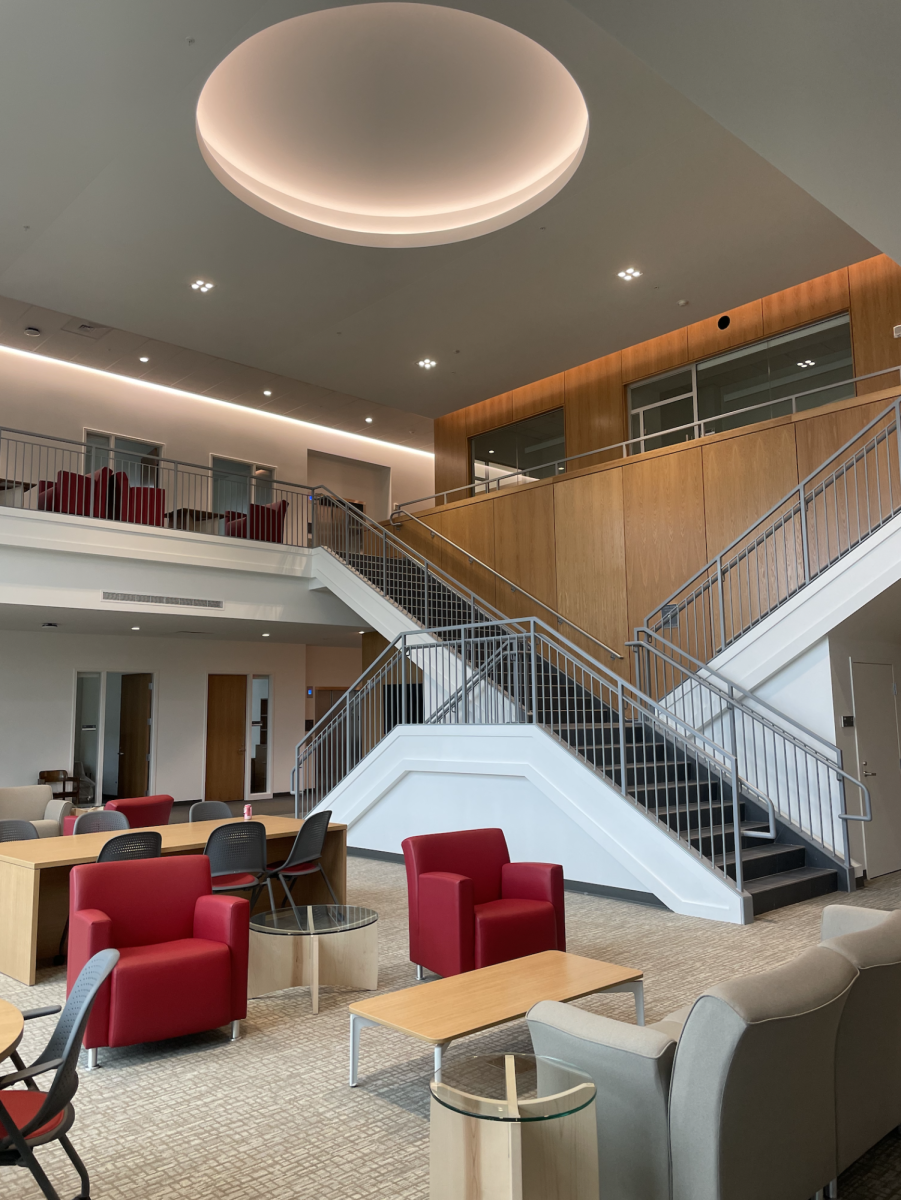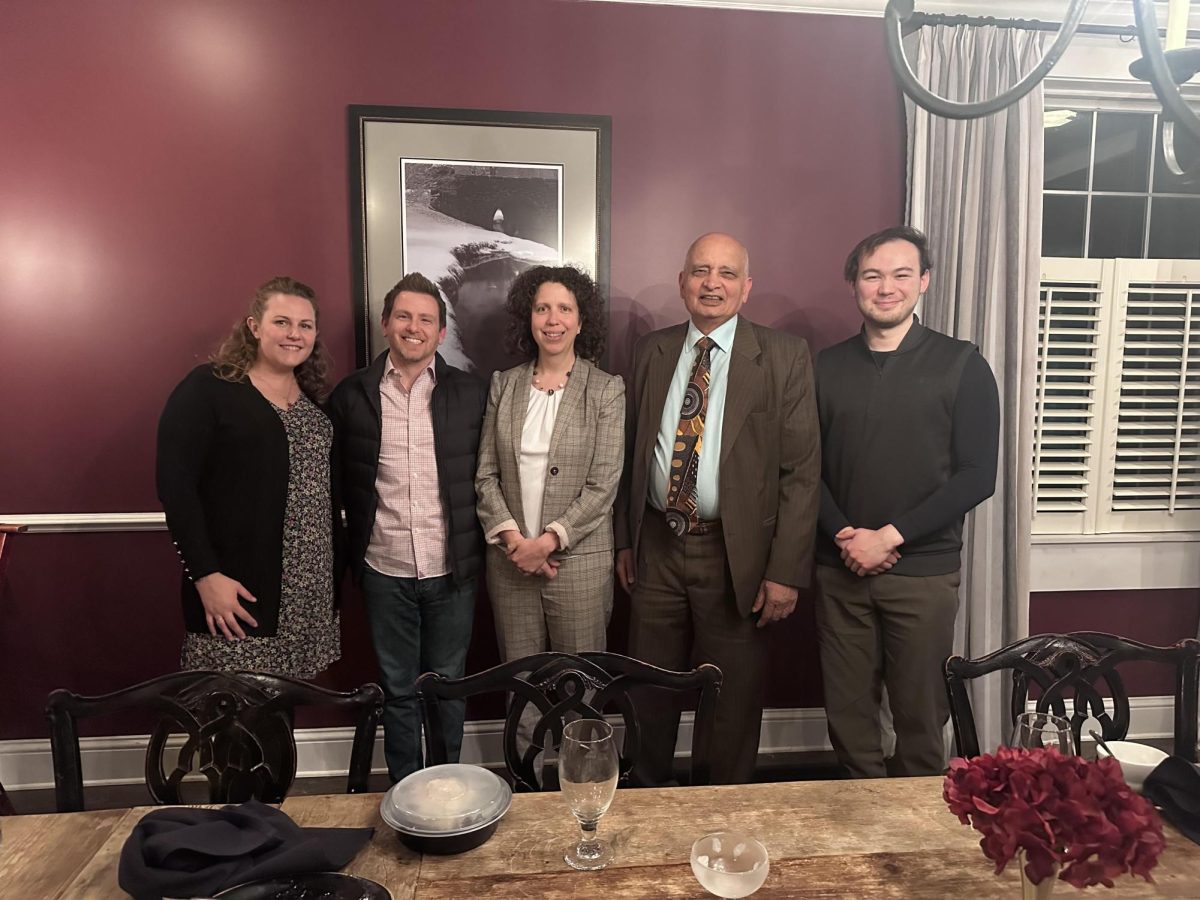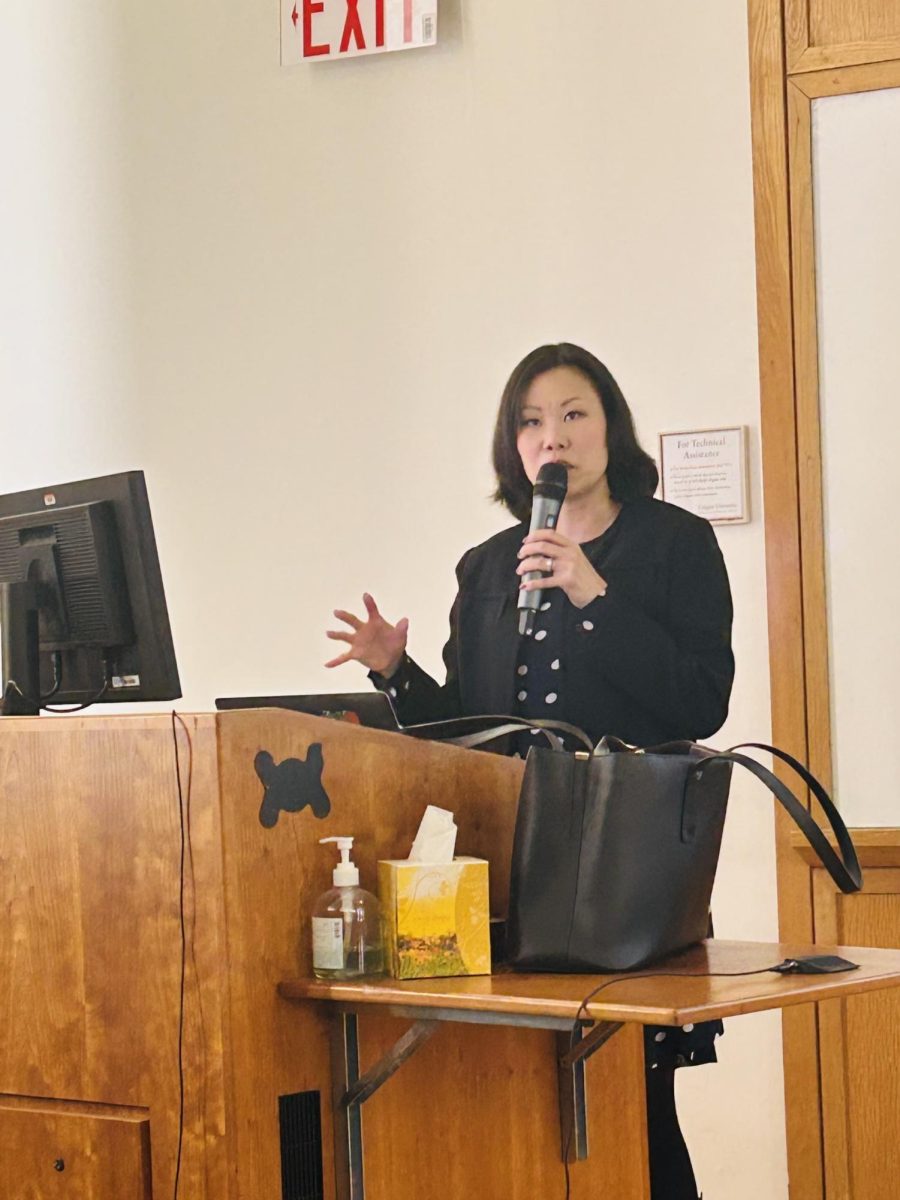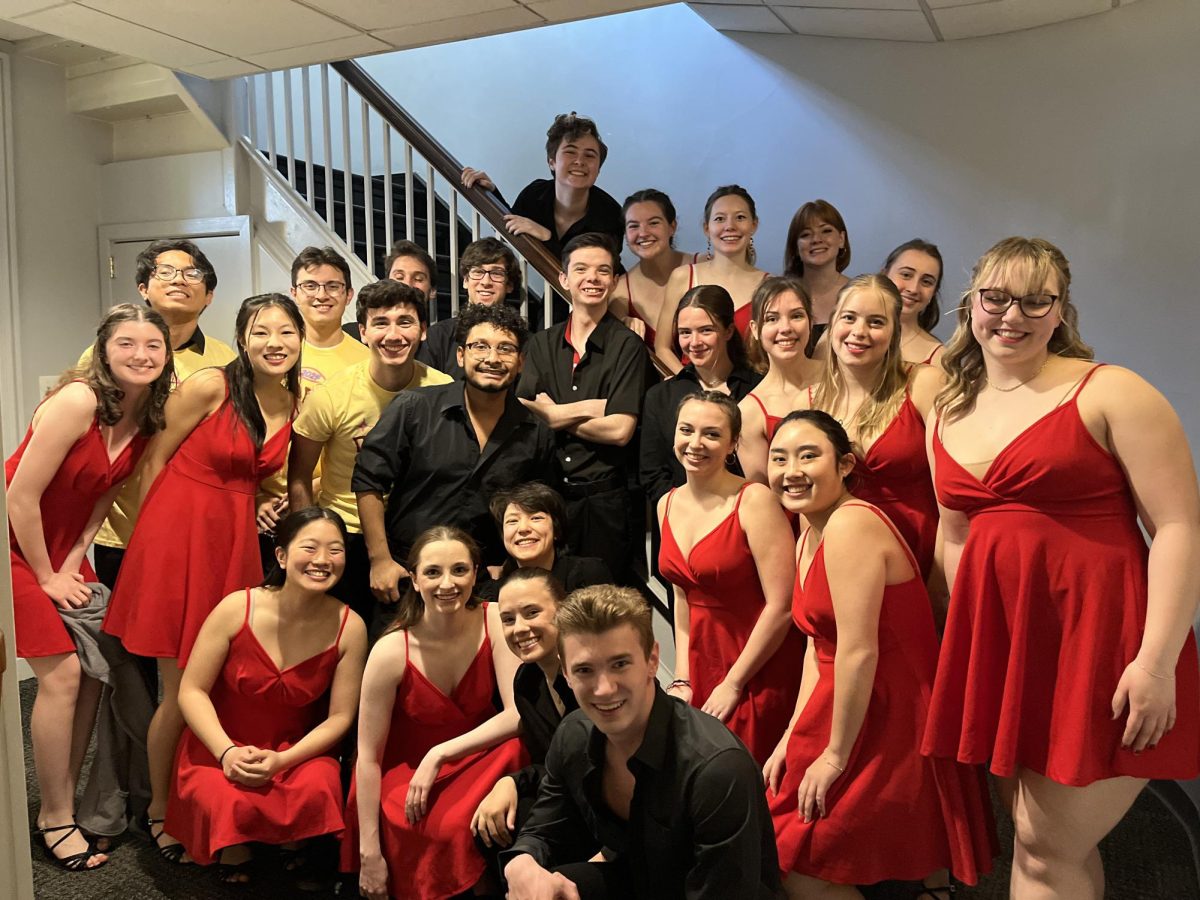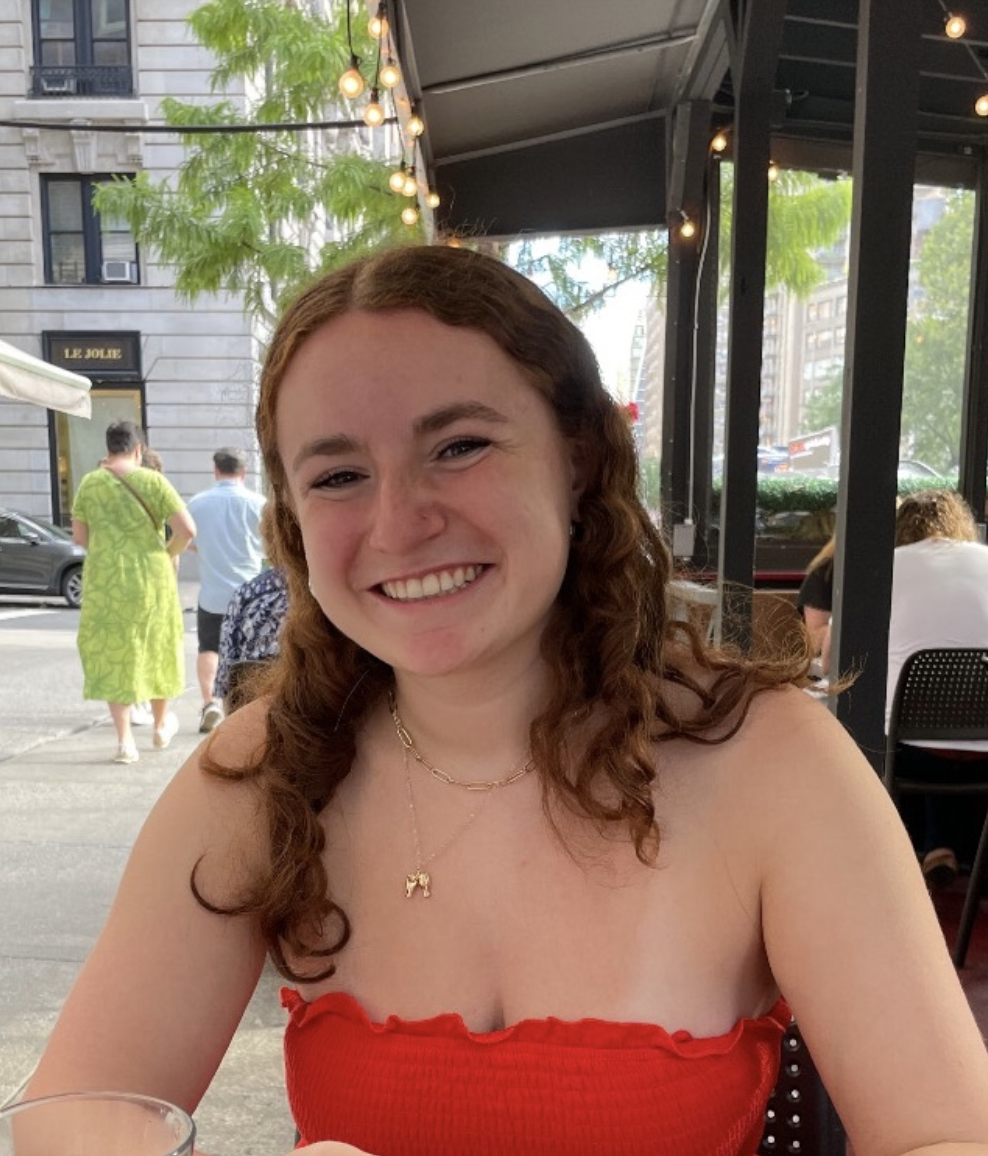Former United States Assistant Secretary of Defense for Indo-Pacific Security Affairs Randall Schriver visited Colgate University for the Alexander Hamilton Society’s (AHS) first event with a guest on campus. Schriver was one of five founding partners of Armitage International LLC prior to his confirmation and served as the CEO and President of the Project 2049 Institute.
AHS is a national non-partisan, not-for-profit organization that aims to educate students on foreign policy and national security, simultaneously encouraging them to find careers in those fields. As the name suggests, AHS pursues these goals with Alexander Hamilton’s mindset surrounding strong American leadership in foreign affairs.
First-year Adrian de Vernou shared his excitement surrounding the event.
“The event absolutely exceeded all of my expectations,” de Vernou said. “Not only was Mr. Randall Schriver’s lecture insightful and thought provoking, but the room was full of students who actually came prepared to engage in the Q&A portion and ask solid questions. It definitely did not feel like it was the first event we had ever held, and the success has certainly created a high standard going forward for the rest of our events.”
Schriver began the conversation by describing the current state of affairs between China and the United States, specifically under the Biden administration and Project 2049.
Schriver helped found the institute in 2008, which focuses on China studies and security issues with a niche capability to utilize Chinese linguists to do research. Schriver shared that much of their research occurs through Chinese language materials, such as in military journals and other websites that are not widely accessible. Shriver shared the Project 2049 Institute’s methodology for research.
“To understand the Chinese, we read what they write, listen to what they say and watch what they do,” Schriver said.
He further discussed that the Trump administration was the first to use the phrase “strategic competition” and acknowledge that China is a strategic competitor with the United States. China, however, has known this for much longer.
“We’ve been tracking Chinese views of the U.S. and Chinese ambitions in the region for a long time,” Schriver said. “And I’m here to tell you they’ve had great ambition and they have had a different vision for the Indo-Pacific region — a different vision for how the security architecture would look […]. Although we are just acknowledging competition more recently, the previous administration was the first to use the phrase ‘strategic competition’ with China and [acknowledge] China as a strategic competitor.”
Schriver shared that a change in orientation surrounding foreign policy with China occurred during the Obama administration via their “Pivot to Asia” strategy. The Trump administration largely followed these policies.
“I’d like to say that the Trump administration is more evolutionary than revolutionary on China,” Schriver said. “Although the language is more pointed in a lot of ways, in most ways I would say that the Trump administration was carrying forward a lot of policies initiated during the Obama administration.”
The Biden administration has been consistent with the last two administrations in most regards, according to Schriver. The administration is concerned with their state of competition with China, which has become increasingly more unfriendly. Their number one priority is to “find the floor” with the Chinese government. President Biden hopes to accomplish this during his visit in San Francisco with Chinese President Xi Jingping in order to stabilize the relationship.
The second goal is to bolster deterrence, primarily with Taiwan. Schriver also discussed the “right-shaping” of the United States’ relationship with China and the importance of ad hoc mini coalitions.
Students asked questions surrounding the impacts of the war in Ukraine, conflict in Gaza as well as the Belt and Road Initiative. Additional topics considered included bipartisan consensus and the prospect of cooperation with the Chinese government.
The Alexander Hamilton Society is a new organization on Colgate’s campus this fall, yet the group easily filled a room of students who are intrigued by foreign policy.
Senior Connor Rushford, the founder of Colgate’s AHS chapter, shared his motivations for bringing AHS to Colgate, stemming from his experience at Middlebury College.
“I spent the summer after my sophomore year at the Middlebury Language School,” Rushford said. “During my time there, I met a young woman in grad school who was working with the UN at the time. She suggested that I join the society, and when I found out that Colgate didn’t have a chapter, I decided to start one. I applied to start a chapter and was recognized by the national branch before the end of that summer.”
In a typical AHS meeting, students plan guest speaker events and engage in guided discussions on pressing policy and security issues. Colgate’s chapter also has a book club and provides students with opportunities to discuss current course material.
AHS welcomes students with varying degrees of knowledge in foreign policy and international relations. There are over 80 collegiate chapters of AHS across the United States which sponsor events and conferences, including trips to Washington, D.C. Their cooperation with Colgate students allowed for Schriver’s visit.
De Vernou shared that all are welcome within the society.
“Whether you are just interested in joining the Colgate chapter to learn about foreign policy with your peers, or you intend on pursuing a career in foreign policy in our nation’s capital, there is a place for you within AHS,” de Vernou said.


